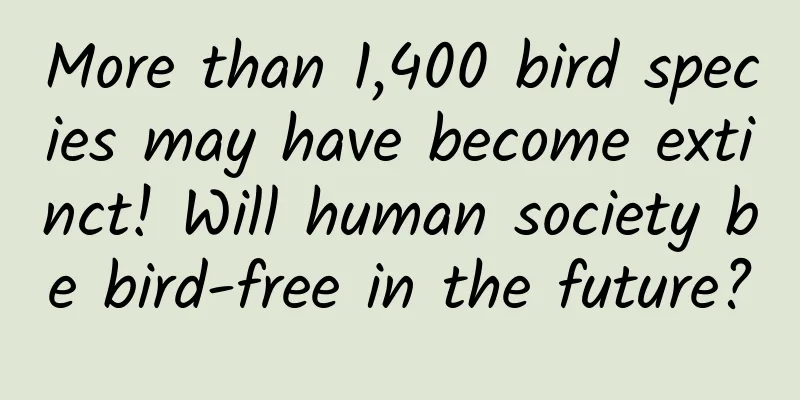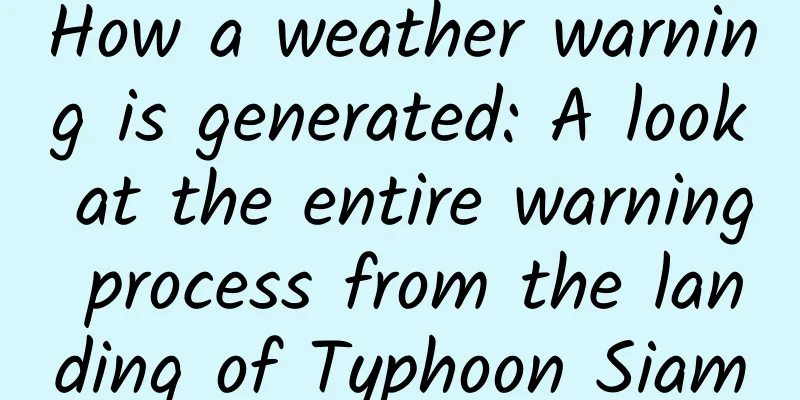More than 1,400 bird species may have become extinct! Will human society be bird-free in the future?

|
Science and Technology Daily, Beijing, December 21 (Reporter Zhang Mengran) A new study found that human activities have "wiped out" more than 1,400 bird species, twice as many as previously thought, which has a significant impact on the ongoing biodiversity crisis. The study, led by the UK Center for Ecology and Hydrology and published in the latest issue of Nature Communications, used statistical models to estimate undetected bird extinctions. Many islands in the world were once bird paradises, but deforestation, overhunting and the introduction of invasive species have had a profound impact on the environment. Since the 16th century, many bird extinctions have been recorded, but before that, people's understanding of the fate of species was very limited and could not reflect the true extent of the extinction. New research shows that human activities have had a much greater impact on bird diversity than previously thought. Humans have rapidly devastated bird populations by causing loss of habitat through overdevelopment and introducing rats, pigs and dogs that raid bird nests and compete with them for food. Many bird species became extinct before written records began, leaving no trace behind. The world could lose not only many fascinating birds, but also their associated ecological roles, including key functions such as seed dispersal and pollination, the researchers said. This has a cascading, detrimental effect on ecosystems. So, in addition to losing birds, people will also lose many plants and animals that depend on birds for survival. The study shows that 640 bird species have become extinct since the late Pleistocene, 90% of which have become extinct on inhabited islands. They include the iconic dodo of Mauritius, the great auk of the North Atlantic, and the little-known giant hoopoe of St. Helena. The researchers estimate that another 790 unknown bird species have become extinct, meaning a total of 1,430 bird species have disappeared. The team also discovered a massive vertebrate extinction event that occurred in the 14th century: an estimated 570 bird species disappeared after humans first arrived in the eastern Pacific, including Hawaii and the Cook Islands. An earlier study showed that humans face the risk of losing up to 700 species of birds in the next few hundred years. |
>>: Don't worry, drinking a few sips of milk tea won't make you fat! But the premise is...
Recommend
How to use data to drive operational growth
Maybe we won’t get a satisfactory result immediat...
Is the “Metaverse” really a scam? Why do “capital” and ordinary people have different views?
The "Metaverse" has been very popular r...
Are you accusing Xiaomi of plagiarism? It's not as simple as just looking at the appearance.
On December 10, Xiaomi launched an air purifier. ...
Fix now! Unix bug puts all Linux systems at risk
[51CTO Quick Translation] Researchers have discov...
iPad Pro or MacBook? If you are undecided, please read this
The launch of Apple's iPad Pro has sparked a ...
More complete App design resources in 2018 (tools + template downloads + examples)
When designing mobile apps, designers want to pre...
Necessary infrastructure for private domain user operations!
Selection of target users and construction and ap...
How does Shanghai Disneyland, which has become "profitable" in just one year, operate?
In addition to the official website, theme park a...
Musk: Tesla's electric pickup Cybertruck is about to roll off the production line, with reservations exceeding 500,000 units
Recently, a netizen asked Musk on Twitter when Te...
The secret to explosive growth in short video ads!
The "White Paper on the Value of Bytedance S...
2016 Christmas advertising video collection 1: Warmth makes winter no longer cold!
The annual Christmas is coming soon in this cold ...
Interstellar Odyssey: A Guide to the Solar System's Planets in 2024
(Image credit: Josh Dinner) How can we best see t...
Berg Insight: Global mobile M2M users to reach 265.2 million in 2015
Berg Insight, a Swedish research institute specia...
How to turn demand into practical product solutions!
Here we assume that the company already has a cer...
Using thermal radiation to measure body temperature, how can infrared technology be so powerful!
Since the outbreak of the new coronavirus pandemi...









